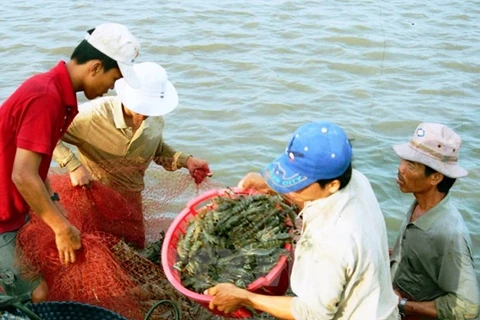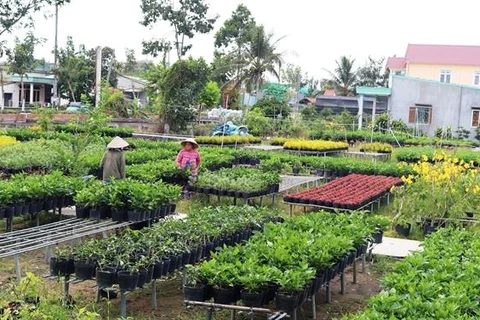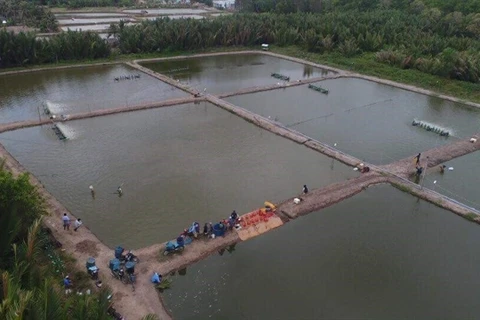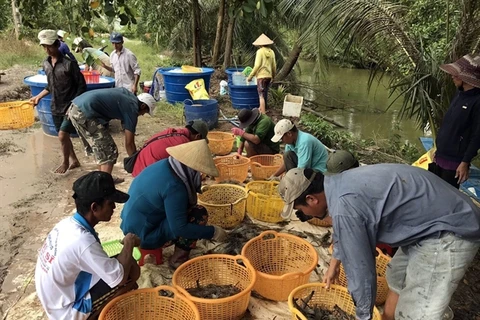 Famers harvest rice planted under the shrimp – rice farming model in Tien Giang province’s Tan Phu Dong district. – (Photo: VNA)
Famers harvest rice planted under the shrimp – rice farming model in Tien Giang province’s Tan Phu Dong district. – (Photo: VNA) Located in the Mekong Delta province of Tien Giang, the island district is surrounded by the sea and the Cua Tieu and Cua Dai estuaries.
The district is affected by saltwater intrusion for about six months in the dry season when it is not suitable for growing rice.
What farmers are doing in response is to breed shrimp during this period and cultivate rice in the rainy season.
So far, this model has proven effective, generating a stable income and helping many farmers escape poverty. With this mode, they can earn an average of 50 – 60 million VND (2,200 – 2,600 USD) per hectare a year.
Le Thanh Dang, Deputy Chairman of the Tan Phu Dong district People’s Committee, said that this model was adopted when implementing the province’s policy of restructuring agriculture production to cope with climate change.
Since then, the model is being applied on about 130ha, mostly in the district’s Phu Tan comumme. The district now has the largest shrimp – rice farming area in the province, Dang said.
Rice is usually grown between lunar June and October. Farmers in the district cultivate saltwater-resistant rice varieties like OM and VD20, which have high yield and high quality.
Ngo Van Nhan, one of the first farmers to implement shrimp-rice farming on his three-hectare field in Phu Tan, said under this model, shrimp is bred using the extensive farming method, which suits local farming skills of farmers and is easy to implement.
“The extensive farming method also has less risk compared to the intensive shrimp farming method and offers good returns,” he said.
The breeding period under the extensive farming method lasts about 5-6 months in the dry season and the rest of the time is spent on growing rice.
Favourable weather, plenty of fresh water resources and the application of advanced rice farming techniques delivered a bumper harvest the last crop, Nhan said, adding that he earned a profit of 37 million VND (1,600 USD) per hectare.
Cooperative benefits
Locals have established the Phu Tan agriculture-fisheries co-operative group, which implements shrimp-farming on more than 60ha.
Ha Van Hai, head of the co-operative group, said members have applied advanced farming techniques to produce clean rice and shrimp. They adhere to global good agricultural practices (GlobalGAP) standards, he said.
Its rice and shrimp have guaranteed outlets, he added.
While mitigating the impact of saltwater intrusion in the district’s coastal areas, the model has promoted sustainable farming and has proven a practical response to climate change, he said.
All members of the cooperative group now lead stable lives.
District authorities have promoted the model by providing the knowhow and advancing soft loans for farmers to implement the shrimp-rice farming model, helping many escape poverty.
Previously many farming areas had been left idle with farmers unable to grow crops because of saltwater intrusion. Instead they had to work as daily hired workers and lived in poverty./.
VNA























